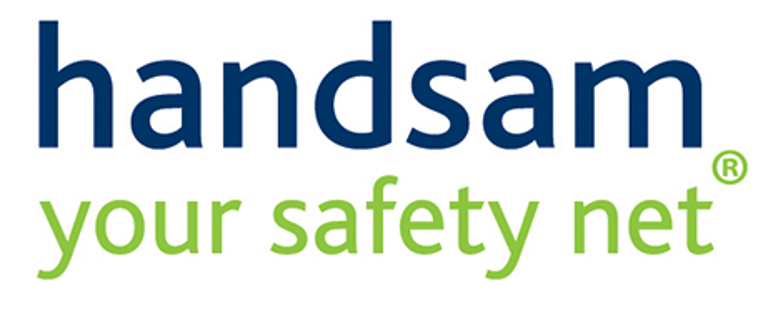
Updated Statutory Guidance for the RSHE Curriculum - Safety Education Prominent
The DfE have published updated Statutory Guidance for the RSHE curriculum, with safety education prominent in the new mandatory requirements.
The full Statutory Guidance for the RSHE curriculum can be found here:
For Primary age pupils, the new Statutory Guidance lists a range of curriculum content which must be taught, including from page 25. These include (not limited to):
The full Statutory Guidance for the RSHE curriculum can be found here:
For Primary age pupils, the new Statutory Guidance lists a range of curriculum content which must be taught including from page 25. These include (not limited to):
Health protection and prevention
How to recognise early signs of physical illness, such as weight loss, or unexplained changes to the body.
The importance of sufficient good quality sleep for health, the amount of sleep recommended for their age, and practical steps for improving sleep, such as not using screens in the bedroom. The impact of poor sleep on weight, mood and ability to learn.
About dental health and the benefits of good oral hygiene, including brushing teeth twice a day with fluoride toothpaste, cleaning between teeth, and regular checkups at the dentist.
About personal hygiene and germs including bacteria, viruses, how they are spread and treated, and the importance of handwashing.
Personal safety
About hazards (including fire risks) that may cause harm, injury or risk and ways to reduce risks.
How to recognise risk and keep safe around roads, railways, including level crossings, and water, including the water safety code.
Basic first aid
How to make a clear and efficient call to emergency services if necessary, including the importance of reporting incidents rather than filming them; and
Concepts of basic first aid, for example dealing with common injuries and ailments, including head injuries.
There are also further requirements around teaching pupils about the correct anatomical names for their body parts and other aspects of the human body.
Physical health and fitness
The characteristics of a healthy lifestyle, including physical activity and maintaining a healthy weight, including the links between an inactive lifestyle and ill-health, including cardiovascular ill-health;
Factual information about the prevalence and characteristics of more serious health conditions; and
That physical activity can promote wellbeing and combat stress.
Healthy eating
How to maintain healthy eating and the links between a poor diet and health risks, including tooth decay, unhealthy weight gain, and cardiovascular disease;
The risks of unhealthy weight gain, including increased risks of cancer, type 2 diabetes and cardiovascular disease; and
The impacts of alcohol on diet and unhealthy weight gain.
Drugs, alcohol, tobacco and vaping
The facts about which drugs are illegal, the risks of taking illegal drugs, including the increased risk of potent synthetic drugs being added to illegal drugs, the risks of illicit vapes containing drugs, illicit drugs and counterfeit medicines, and the potential health harms, including the link to poor mental health;
The law relating to the supply and possession of illegal substances;
The physical and psychological risks associated with alcohol consumption. What constitutes low risk alcohol consumption in adulthood, and the legal age of sale for alcohol in England; Understanding how to increase personal safety while drinking alcohol, including how to decrease the risks of having a drink spiked or of poisoning from potentially fatal substances such as methanol; and
The physical and psychological consequences of problem-use of alcohol, including alcohol dependency.
Plus sections on Health Protection and Prevention, Understanding the Healthcare System, Personal Safety, Basic First Aid and Developing Bodies.
Please note that both Primary and Secondary sections include the Water Safety Code: https://www.rlss.org.uk/listing/category/the-water-safety-code
In response to this, Handsam have updated various Quick Guides including:
CP02 Sex and Relationships Education Guidance
CP05 Keeping Children Safe in Education
RAS68 Risk Assessment Template School Swimming
We have also added two new tasks which have been added, that will need to be assigned to relevant staff to evidence as being delivered:
Annual: Ensure the school/academy has taken suitable and sufficient steps to train leaders in the requirements of the Worker Protection Act (October 2024) and create a zero-tolerance environment around sexual harassment in the workplace. N.B. Training for managers can be delivered via the Handsam e-training course 'Sexual Harassment Duties for Managers and Employers under the 2024 Worker Protection Act'. Also, use Handsam Quick Guides 'ST32 Worker Protection Act (2023): What Employers Need To Know About Managing Sexual Harassment in the Workplace'.
Annual: Ensure the school/academy has taken suitable and sufficient steps to inform staff that this is a zero-tolerance environment as regards sexual harassment, as per the requirements of the Worker Protection Act (October 2024). N.B. Staff training can be delivered via the Handsam e-training course 'Sexual Harassment in the Workplace: What Staff Need to Know'.




For Secondary age pupils, the new Statutory Guidance lists a range of curriculum content which must be taught, including from page 32. These include (not limited to):
Mental wellbeing
How to talk about their emotions accurately and sensitively, using appropriate vocabulary;
The benefits and importance of physical activity, sleep, time outdoors community participation and volunteering or acts of kindness for mental wellbeing and happiness;
That worrying and feeling down are normal, can affect everyone at different times and are not in themselves a sign of a mental health condition, and that managing those feelings can be helped by seeing them as normal;
Characteristics of common types of mental ill health (e.g. anxiety and depression), including carefully-presented factual information about the prevalence and characteristics of more serious mental health conditions. This should not be discussed in a way that encourages normal feelings to be labelled as mental health conditions; and
This also includes a section on mental health online.
Office 27, East Moons Moat Business Centre
Oxleasow Rd, Redditch B98 0RE
Phone: 0333 207 0737


